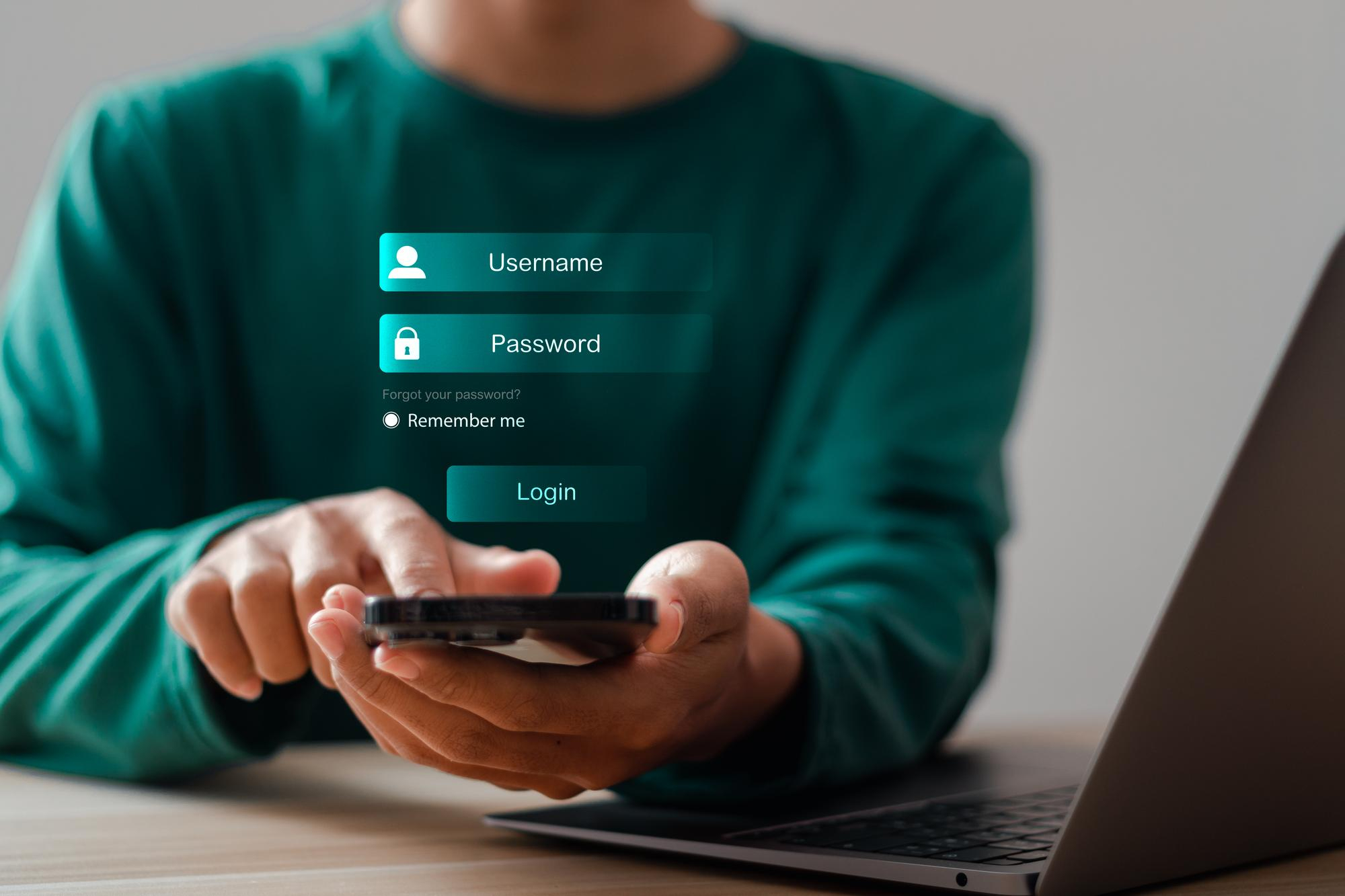In today’s digital world, online SMS services have become increasingly popular. Whether you’re signing up for a new platform, verifying accounts, or protecting your privacy, these services offer a quick and convenient way to receive SMS without revealing your personal number. But is receiving SMS online actually safe?
What Are Online SMS Services?
Online SMS services enable users to receive text messages without needing to use their personal phone numbers. These platforms offer temporary or virtual numbers that allow people to stay anonymous while still receiving SMS messages. The service is typically accessible through websites or apps, which makes it a convenient option for those looking to protect their personal privacy.
When using these services, individuals are provided with a phone number that they can use for specific purposes, like signing up for websites, receiving verification codes, or managing temporary accounts. Once the task is completed, the number is often discarded, adding a layer of privacy for users.
There are different types of online SMS services available, each catering to various needs and security levels. Free services, for example, are usually public, meaning anyone can view the received messages, which might not be ideal for sensitive information. On the other hand, private virtual numbers provide greater security, offering exclusive numbers for individual use, typically through paid platforms. These services ensure that the messages are only accessible to the user who owns the number.
Additionally, some online SMS services integrate with VoIP platforms like Google Voice or Skype, allowing users to receive messages directly to their internet-based accounts. These types of services are often more reliable and secure, as they leverage established platforms to manage SMS communication.
How Do Online SMS Services Work?
| Service Type | Functionality | Access Method | Use Cases | Security Features |
| Temporary Numbers | Generates a short-term phone number for temporary use. | Web platforms, apps | Signing up for websites, online verifications | Low – Public access, risk of message exposure |
| Virtual Numbers (Private) | Provides exclusive phone numbers for secure use. | Apps, websites (paid services) | Secure sign-ups, sensitive communications | Medium to high – Private access, often encrypted |
| VoIP-based Numbers | Uses internet-based services (like Google Voice) to receive SMS. | VoIP platforms like Google Voice or Skype | Secure messaging, communication with international contacts | High – Encrypted communication via internet-based services |
| Shared Public Numbers | Allows multiple users to access the same number, making messages public. | Public websites | Temporary account verifications, anonymous usage | Very low – Public messages, security risks |
| Dedicated SMS Numbers | Assigns a dedicated virtual number for exclusive use by one person or service. | Paid services, apps | Business verifications, personal security | High – Encrypted, private access |
The Pros and Cons of Receiving SMS Online
· Advantages of Online SMS Services
- Privacy Protection: Using online SMS services keeps your personal phone number private. You can receive messages without exposing your real number, which helps protect your identity and reduce unsolicited contact.
- Convenience: These services are incredibly convenient for tasks that require SMS verifications, such as signing up for websites or confirming online transactions. You don’t need to worry about carrying a physical SIM card or being tied to a specific device.
- Bypass Regional Restrictions: Some online SMS services provide numbers from different countries. This allows you to access services or websites that may be restricted in your region, making it easier to perform international sign-ups or verifications.
- Avoid Spam and Telemarketing: By using a temporary number, you can avoid spam and telemarketing calls. Once you’re done using the number for a specific task, it can be discarded, keeping your real number free from unwanted solicitation.
· Potential Risks and Disadvantages
- Lack of Security: Many free public SMS services lack robust security features. These services may be accessible to anyone, meaning your messages might be seen by third parties, exposing sensitive information.
- Phishing Risks: Cybercriminals can exploit online SMS services to intercept verification codes or sensitive information. Phishing attacks are common, where hackers pretend to be legitimate organizations and trick users into revealing personal details.
- Temporary Availability: Some numbers provided by online SMS services are temporary and may expire quickly. This can be problematic if you need ongoing access to the number for a longer period, such as for two-factor authentication or repeated verifications.
- Not Always Reliable: Not all online SMS services are 100% reliable. Some websites may fail to deliver certain SMS messages, especially from major services like banks or online stores, making it unreliable for more critical tasks such as financial transactions.
Common Security Risks When Receiving SMS Online
When using online SMS services, it’s essential to be aware of various security risks that can jeopardize your personal information. These services may seem convenient, but they can expose you to several dangers if not used cautiously.
One of the primary concerns with free public online SMS services is the public exposure of messages. Many of these services display incoming messages, including One-Time Passwords (OTPs) and verification codes, in a public forum where anyone can access them. This poses a significant risk as malicious actors can easily retrieve these sensitive details, leading to unauthorized access to your accounts.
Another major security risk is account takeovers. Since some online SMS services allow anyone to view the received messages, hackers can exploit this vulnerability to capture OTPs. With these verification codes, cybercriminals can take control of accounts linked to the phone number, potentially accessing sensitive personal or financial information.
Phishing attacks are also a significant threat. Cybercriminals may impersonate legitimate entities like banks, technology companies, or government agencies and use online SMS services to trick users into revealing sensitive data. They may send SMS messages that appear to be official requests for information or direct users to fake websites designed to steal login credentials.
Furthermore, some online SMS services engage in data harvesting, where they log your received messages and may even sell this data to advertisers or other third parties. This is particularly concerning because your personal information could end up in the hands of malicious actors or companies with questionable motives.
Security Tips for Safely Using Online SMS Services
| Security Tip | Description | Why It’s Important | Best Practice | Example/Recommendation |
| Choose a Reputable Service | Not all online SMS services are trustworthy. Look for services with good reviews and security policies. | Trustworthy services ensure encrypted connections and privacy. | Do research on reviews and security features. | Use services with SSL encryption and positive feedback. |
| Avoid Using Public Numbers for Sensitive Information | Never use free, public SMS services for sensitive tasks like banking or government verifications. | Public numbers are vulnerable to exposure, risking your personal data. | Limit public number usage to non-sensitive tasks. | Avoid using these for password resets or financial activities. |
| Use Private or Paid Virtual Numbers | For secure activities, opt for paid services offering private numbers and encrypted connections. | Paid services typically offer better privacy and security. | Invest in paid services for important transactions. | Services like Google Voice or Burner for secure communication. |
| Enable Two-Factor Authentication (2FA) with an Authenticator App | Use authenticator apps like Google Authenticator or Authy instead of relying on SMS-based 2FA. | Authenticator apps are more secure than SMS-based authentication. | Switch to offline-based 2FA methods. | Use Google Authenticator for enhanced security. |
| Check the URL and Avoid Phishing Traps | Always verify the website’s legitimacy before using an SMS service. Watch out for lookalike domains. | Phishing sites can steal your personal data through deceptive links. | Carefully inspect the URL and check for HTTPS. | Look for “https” and a padlock icon next to the URL. |
| Clear Your Messages After Use | Some services allow you to delete received messages—use this feature to protect your privacy. | Deleting messages ensures your information isn’t stored indefinitely. | Use the delete option or set automatic deletion. | Clear messages right after receiving verification codes. |
| Use a VPN for Extra Privacy | A VPN helps protect your IP address and prevent tracking when using online SMS platforms. | VPNs mask your IP address, providing an extra layer of privacy. | Always connect to a VPN before using SMS services. | Use services like NordVPN or ExpressVPN for better privacy. |
Best Alternatives to Online SMS Services
If you’re concerned about security and want more privacy, here are some safer alternatives to online SMS services:
- Virtual Phone Numbers: Services like Google Voice, Twilio, and TextNow offer private virtual numbers that provide a higher level of security compared to free public SMS services. These numbers are often used for verifications and secure communications without exposing your personal phone number.
- Secure Messaging Apps: Apps such as Signal, Telegram, and WhatsApp offer end-to-end encrypted messaging, ensuring that only you and the recipient can read the messages. These apps provide a safer alternative to SMS-based communication and are highly recommended for secure conversations.
- Hardware Security Keys: Devices like YubiKey provide an added layer of security by eliminating the need for SMS-based two-factor authentication (2FA). These physical keys authenticate your identity with a simple tap, making them a secure method for protecting your online accounts without relying on SMS codes.
- Email-Based Verification: Whenever possible, opt for email-based verification instead of using SMS. Email verification can be more secure as it doesn’t rely on potentially compromised phone numbers, and it allows for more control over the verification process.
Exploring Secure Communication Methods Beyond SMS
As digital security becomes more critical, exploring secure communication alternatives to traditional SMS services is essential for maintaining privacy and safeguarding personal information. While online SMS services can be convenient, they come with inherent risks, such as exposure to phishing attacks and the potential for hackers to intercept sensitive data. Fortunately, numerous alternatives are available, providing more secure and private communication options.
One prominent alternative is the use of virtual phone numbers, which offer better privacy by using temporary or dedicated numbers for specific purposes. Services like Google Voice, Twilio, and TextNow provide virtual numbers that can be used for verification purposes or other communications, ensuring your personal phone number remains protected from potential exposure.
Another robust alternative is secure messaging apps, such as Signal, Telegram, and WhatsApp. These apps utilize end-to-end encryption, meaning only the sender and recipient can access the messages. Unlike SMS, which can be intercepted or accessed through phone numbers, these apps ensure that your messages remain private and protected from malicious actors.
For those who are serious about security, hardware security keys provide a powerful method of authentication. Devices like YubiKey eliminate the need for SMS-based two-factor authentication (2FA) by offering a physical key that must be inserted into the device to authenticate. This eliminates the vulnerabilities of SMS, ensuring a safer and more reliable form of account protection.
Lastly, email-based verification is another secure option for those who prefer to avoid SMS altogether. While email accounts can also be targeted by hackers, they tend to offer better security controls, such as two-factor authentication, and provide a more stable form of verification. By choosing email-based verification whenever possible, users can reduce their reliance on SMS for critical account access and transactions.



